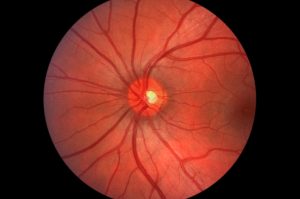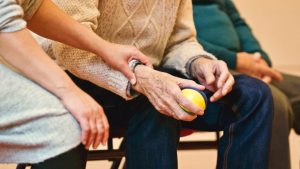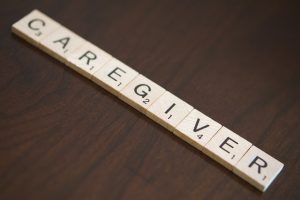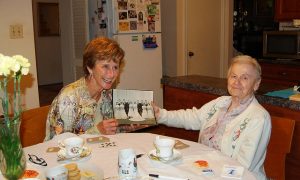Glaucoma Symptoms
Background
Glaucoma is a group of degenerative eye diseases with various causes that leads to progressive optic neuropathy, in which the optic nerve is damaged by high intraocular pressure (IOP), resulting in blindness. Glaucoma is a leading cause of visual impairment and the second leading cause of blindness in the United States; it occurs more often in those over 40, with an increased incidence with age (3% to 4% in those over age 70) (Fingeret, 2010; Kennedy-Malone et al., 2000; Podolsky, 1998).
Risk factors
Unlike cataracts, there are some ethnic distinctions with the development of glaucoma. African Americans tend to develop it earlier than Caucasians, and females more often than males. Glaucoma is more common in African Americans, adults over age 60 (especially Mexican Americans), and people with a family history (NIH, 2013). Other contributing factors include eye trauma, small cornea, small anterior chamber, cataracts, and some medications.
Signs and symptoms
Although the cause is unknown, glaucoma results from blockage that limits the flow of aqueous humor, causing a rise in intraocular pressure (IOP). Two major types are noted here: acute and chronic. Acute glaucoma is also called closed angle or narrow angle. Signs and symptoms include severe eye pain in one eye, blurred vision, seeing colored halos around lights, red eye, headache, nausea, and vomiting.
Symptoms may be associated with emotional stress. Acute glaucoma is a medical emergency and persons should seek emergency help immediately. Blindness can occur from prolonged narrow angle glaucoma.
Chronic glaucoma, also called open angle or primary open angle, is more common than acute (90% of cases are this type), affecting over 2 million people in the United States. One million people probably have glaucoma and don’t know it, and 10 million people have above normal intraocular pressure that may lead to glaucoma if not treated (University of Washington, Department of Ophthalmology, 2008). This type of glaucoma occurs gradually. Peripheral vision is slowly impaired. Signs and symptoms include tired eyes, headaches, misty vision, seeing halos around lights, and worse symptoms in the morning. Glaucoma often involves only one eye, but may occur in both.
Treatment
Since there is no scientific evidence of preventative strategies, early detection in those at risk is important. Treatment is essential to prevent loss of vision, because once vision has been lost to glaucoma, it cannot be restored. Diagnosis is made using a tonometer to measure IOP. Normal IOP is 10–21 mm Hg. Ophthalmologic examination will reveal changes in the color and contour of the optic nerve when glaucoma is present. Gonioscopy (direct exam), which is performed by an optometrist or ophthalmologist, provides another means of evaluation. Older persons and those at higher risk should have a yearly eye exam to screen for glaucoma.
Treatment is aimed at reducing IOP. Medications to decrease pressure may be given, and surgical iridectomy to lower the IOP may prevent future episodes of acute glaucoma. In chronic glaucoma, there is no cure, so treatment is aimed at managing IOP through medication and eye drops. Consistent use of and correct administration of eye drops is important. Older adults should be assessed for safety related to visual changes and also reminded to schedule and attend regular visits with their ophthalmologist.
Adapted from Mauk, K. L., Hanson, P., & Hain, D. (2014). Review of the management of common illnesses, diseases, or health conditions. In K. L.
Mauk’s (Ed.) Gerontological Nursing: Competencies for Care. Sudbury, MA: Jones and Bartlett Publishers. Used with permission.
Glaucoma Symptoms
http://www.nlm.nih.gov/medlineplus/tutorials/glaucoma/htm/index.htm







